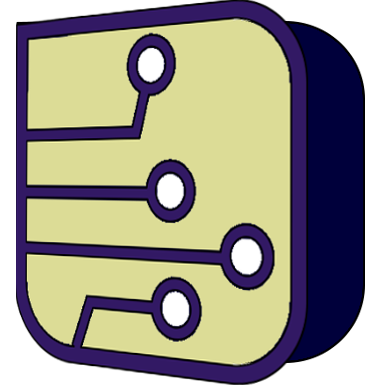ssd1306 not being recognized in 1.1.0 SR1
Quote from macckone on June 23, 2025, 7:00 pmI have a very simple circuit with just an arduino and the ssd1306.
The ssd1306 is not being recognized on the I2c bus.
It doesn't appear to complete begin properly with the SSD1306AsciiAvrI2c
I am uncertain what is causing the issue. It is like the SSD1306 isn't there.
This code works with a real arduino and ssd1306.
I do not know if it works with other versions of Simulide.
#include <Wire.h> #include <SSD1306Ascii.h> #include <SSD1306AsciiAvrI2c.h> #include <fonts/X11fixed7x14B.h> #include <fonts/font8x8.h> #define SCREEN_WIDTH 128 // OLED display width, in pixels #define SCREEN_HEIGHT 64 // OLED display height, in pixels #define OLED_RESET -1 // Reset pin # (or -1 if sharing Arduino reset pin) #define SCREEN_ADDRESS 0x3C ///< See datasheet for Address; 0x3D for 128x64, 0x3C for 128x32 // display SSD1306AsciiAvrI2c oled; // setup variables in the order they are processed bool setupfin = false; bool displayok = false; // Retrun true if device responds to write. // can be used to scan for i2c devices bool i2cCheck(uint8_t i2cAdd) { bool rtn; AvrI2c i2c; i2c.begin(); // low bit zero starts write, low bit 1 starts read. rtn = i2c.start(i2cAdd << 1); i2c.end(); return rtn; } void setup_display_init() { // start up the oled display delay(1000); Serial.println(F("Starting Display")); // bool oledok = i2cCheck(SCREEN_ADDRESS); bool oledok = true; if (oledok) { oled.displayRemap(false); // rotate 180 degrees oled.set1X(); oled.setFont(X11fixed7x14B); Serial.println(F("oled begin")); oled.begin(&Adafruit128x64, SCREEN_ADDRESS); Serial.println(F("oled begin success")); delay(2000); // Clear the buffer oled.clear(); oled.displayRemap(true); oled.setCursor(0, 0); // Start at top-left corner delay(1000); displayok = true; } else { Serial.println(F("OLED not found")); } } void setup_display_clear() { // finish display setup if (displayok) { oled.clear(); oled.set1X(); oled.setFont(X11fixed7x14B); oled.displayRemap(true); } } void setup_serial_debug() { Serial.begin(115200); Serial.println(F("Serial Active")); } // call the various startup procedures void setup() { // reset these before anything else setupfin = false; displayok = false; // put your setup code here, to run once: setup_serial_debug(); setup_display_init(); Serial.println(displayok); if (displayok) oled.println(F("MAX31855 K1")); delay(2000); setup_display_clear(); delay(500); // setup is finished setupfin = true; } void loop() { }
I have a very simple circuit with just an arduino and the ssd1306.
The ssd1306 is not being recognized on the I2c bus.
It doesn't appear to complete begin properly with the SSD1306AsciiAvrI2c
I am uncertain what is causing the issue. It is like the SSD1306 isn't there.
This code works with a real arduino and ssd1306.
I do not know if it works with other versions of Simulide.
#include <Wire.h>
#include <SSD1306Ascii.h>
#include <SSD1306AsciiAvrI2c.h>
#include <fonts/X11fixed7x14B.h>
#include <fonts/font8x8.h>
#define SCREEN_WIDTH 128 // OLED display width, in pixels
#define SCREEN_HEIGHT 64 // OLED display height, in pixels
#define OLED_RESET -1 // Reset pin # (or -1 if sharing Arduino reset pin)
#define SCREEN_ADDRESS 0x3C ///< See datasheet for Address; 0x3D for 128x64, 0x3C for 128x32
// display
SSD1306AsciiAvrI2c oled;
// setup variables in the order they are processed
bool setupfin = false;
bool displayok = false;
// Retrun true if device responds to write.
// can be used to scan for i2c devices
bool i2cCheck(uint8_t i2cAdd) {
bool rtn;
AvrI2c i2c;
i2c.begin();
// low bit zero starts write, low bit 1 starts read.
rtn = i2c.start(i2cAdd << 1);
i2c.end();
return rtn;
}
void setup_display_init() {
// start up the oled display
delay(1000);
Serial.println(F("Starting Display"));
// bool oledok = i2cCheck(SCREEN_ADDRESS);
bool oledok = true;
if (oledok) {
oled.displayRemap(false); // rotate 180 degrees
oled.set1X();
oled.setFont(X11fixed7x14B);
Serial.println(F("oled begin"));
oled.begin(&Adafruit128x64, SCREEN_ADDRESS);
Serial.println(F("oled begin success"));
delay(2000);
// Clear the buffer
oled.clear();
oled.displayRemap(true);
oled.setCursor(0, 0); // Start at top-left corner
delay(1000);
displayok = true;
} else {
Serial.println(F("OLED not found"));
}
}
void setup_display_clear() {
// finish display setup
if (displayok) {
oled.clear();
oled.set1X();
oled.setFont(X11fixed7x14B);
oled.displayRemap(true);
}
}
void setup_serial_debug() {
Serial.begin(115200);
Serial.println(F("Serial Active"));
}
// call the various startup procedures
void setup() {
// reset these before anything else
setupfin = false;
displayok = false;
// put your setup code here, to run once:
setup_serial_debug();
setup_display_init();
Serial.println(displayok);
if (displayok) oled.println(F("MAX31855 K1"));
delay(2000);
setup_display_clear();
delay(500);
// setup is finished
setupfin = true;
}
void loop() {
}
Uploaded files:
Quote from macckone on June 25, 2025, 5:50 amUsing a 10K pullup fixed it. Thanks for the info. Interesting that the real life doesn't require them but the simulation does.
Using a 10K pullup fixed it. Thanks for the info. Interesting that the real life doesn't require them but the simulation does.
